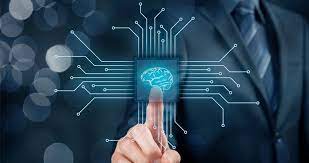In the ever-evolving landscape of Information Technology (IT), staying ahead of the curve is not just a luxury but a necessity. To remain competitive and relevant in today’s digital world, it’s crucial to be well-informed about the latest trends shaping the IT industry. In this comprehensive guide, we will delve into the most cutting-edge developments in IT, providing you with insights and knowledge to keep your business or career on the forefront of innovation.
Artificial Intelligence (AI) Revolution
Artificial Intelligence, commonly known as AI, is a paradigm-shifting technology that’s rewriting the rules of IT. AI, which encompasses machine learning and deep learning, has the potential to revolutionize how we live and work. From chatbots and virtual assistants to autonomous vehicles and predictive analytics, AI applications are virtually limitless. AI-driven solutions enable businesses to analyze vast datasets in real-time, thus providing invaluable insights for decision-making. As a result, AI is not merely a trend but a transformative force in IT that cannot be ignored.
Cloud Computing: Beyond the Sky
Cloud computing continues to dominate the IT sphere. It is a technology that allows data and applications to be stored and accessed over the internet, rather than on a local server or computer. The cloud offers scalability, cost-efficiency, and flexibility, making it an essential resource for businesses of all sizes. The pandemic has further accelerated the adoption of cloud services, emphasizing the importance of remote work and data accessibility. As the world becomes increasingly interconnected, cloud computing is set to be a bedrock of IT infrastructure.
The Internet of Things (IoT): A Web of Connection
The Internet of Things (IoT) is reshaping our world by interconnecting devices, enabling them to communicate and share data seamlessly. This interconnectivity extends from smart home devices to industrial machinery and healthcare equipment. IoT leverages sensors, networks, and cloud platforms to collect and analyze data, resulting in improved efficiency and better decision-making. Businesses embracing IoT gain a competitive edge by optimizing operations and enhancing customer experiences.
Cybersecurity: Protecting the Digital Frontier
In a world where data is the new gold, cybersecurity is more critical than ever. The constant evolution of cyber threats poses a significant challenge for IT professionals and organizations. As technology advances, so do the techniques used by cybercriminals. Robust cybersecurity strategies are a necessity to protect sensitive information and maintain the trust of customers. IT professionals must stay vigilant and proactive in implementing security measures and staying up-to-date with the latest threats and countermeasures.
Quantum Computing: A Glimpse into the Future
While still in its infancy, quantum computing holds the promise of exponential processing power, capable of solving complex problems that would be impossible for classical computers. This technology harnesses the properties of quantum bits or qubits, which can exist in multiple states simultaneously. Quantum computers can potentially revolutionize fields such as cryptography, drug discovery, and climate modeling. Although mainstream adoption is on the horizon, keeping an eye on this emerging trend is essential.
5G Technology: The Speed of Innovation
5G technology is not merely the next step in wireless communication; it’s a game-changer. With faster speeds, reduced latency, and increased capacity, 5G opens up new possibilities in various industries, including healthcare, smart cities, and virtual reality. This technology enables the seamless connection of billions of devices, transforming the way we interact with the internet. As 5G networks continue to expand globally, it’s vital for businesses to explore how this innovation can benefit their operations.
DevOps: Bridging the Development-Operations Gap
DevOps is an approach that emphasizes collaboration between software developers and IT professionals responsible for infrastructure and operations. By automating and integrating the processes of software development and IT operations, DevOps accelerates the delivery of high-quality applications. This trend is reshaping the way IT projects are managed and executed, fostering agility and efficiency in the development process.
Blockchain: Beyond Cryptocurrency
Originally associated with cryptocurrencies, blockchain has evolved into a technology with diverse applications. It provides a transparent, decentralized ledger for recording transactions across multiple industries, from supply chain management to healthcare. Blockchain ensures data integrity, security, and trust, making it an increasingly vital component of IT strategy. The potential of blockchain extends far beyond Bitcoin, offering innovative solutions to age-old problems.
Edge Computing: Bringing Processing Closer
As IoT devices multiply, so does the need for faster data processing. Edge computing brings the processing of data closer to the source, reducing latency and enhancing real-time decision-making. It’s particularly valuable for applications that require immediate responses, such as autonomous vehicles and industrial automation. Businesses that embrace edge computing gain a competitive edge by efficiently managing data streams.
Augmented Reality (AR) and Virtual Reality (VR): A New Reality
Augmented Reality (AR) and Virtual Reality (VR) are transforming the way we experience the digital world. AR overlays digital information onto the real world, enhancing our perception and interaction. VR, on the other hand, immerses users in entirely virtual environments. These technologies have found applications in gaming, healthcare, education, and more. As hardware becomes more accessible, the possibilities for AR and VR are limitless.


